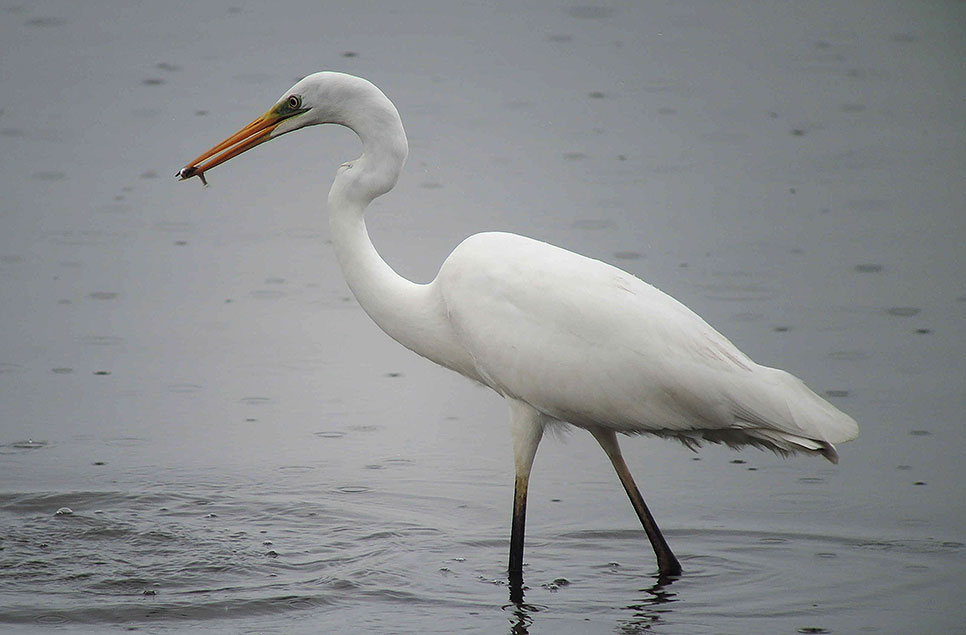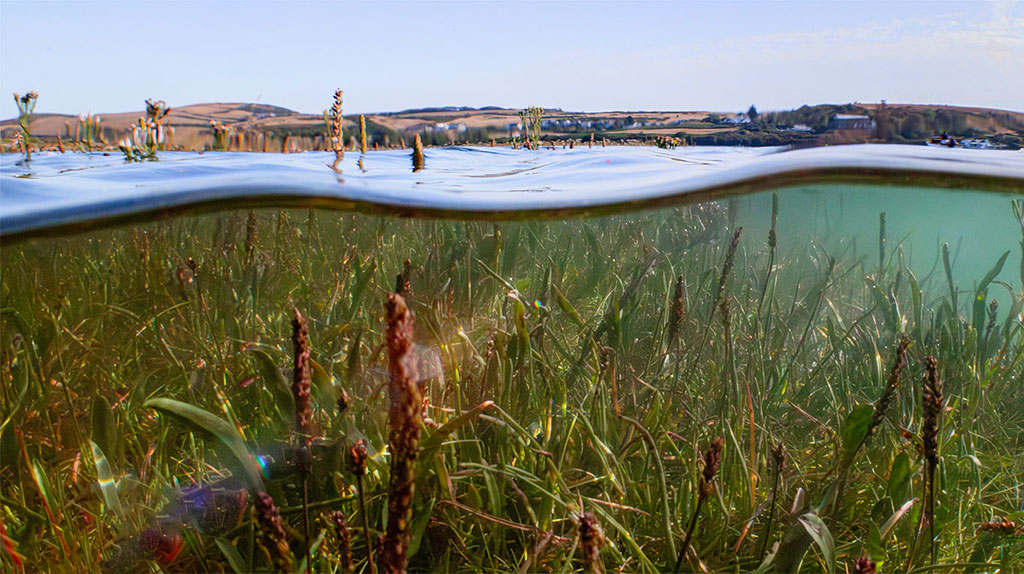WWT helps win protection for wetland wildlife at Hinkley Point C nuclear power station
WWT has helped secure a big win for wetland nature in preserving vital environmental protections at Hinkley Point C nuclear power station on the Severn Estuary.

The Government has decided to keep in place the requirement for EDF Energy to install an acoustic fish deterrent (AFD) on the cooling water system for the new power station in Somerset. This will protect millions of fish from being sucked in and killed by warning them away from the water intakes for the system which sit in the estuary.
WWT played a crucial role in upholding this vital protection for fish and the wetland ecosystem which relies on them, including rare and much loved bird species, such as little egret and cormorant. WWT made the case, alongside Somerset Wildlife Trust, Blue Marine Foundation, Severn Rivers Trust and local anglers, in June 2021 at a public inquiry for the importance of the AFD to protect nature. This ruling pays tribute to that work and hard fought advocacy before and after.
Dr. James Robinson, Director of Conservation at WWT welcomed the news, saying “This is brilliant news for nature.
“WWT worked hard to make sure the need for the AFD was recognised and this ruling will provide vital protection for one of the world’s most important wetlands. The decision is a recognition that the need for new infrastructure must be balanced against the needs of our life-sustaining wetlands”.
The Severn Estuary supports rare species of fish protected under wildlife law, as well as nurseries where young fish grow and replenish fish populations. It also hosts an average of over 70,000 birds each winter, including some rare fish-eating species. It is listed under the Ramsar Convention on Wetlands as an internationally important wetland site.
The ruling is likely to have implications for environmental protections at the Sizewell C nuclear power station. Similar risks to fish are presented by the water intakes at Sizewell, which is also situated in a unique wetland ecosystem. The decision at Hinkley shows similar protections are needed there.
EDF must now install the AFD at Hinkley, or apply for an exemption and provide compensation for the effects on the environment. This could be worth hundreds of millions of pounds to restore wetlands in and around the Severn. WWT will continue to work alongside our partners to secure the best outcome for the internationally important wetland nature of the Severn Estuary.



